Vietnam - a hub of nurturing tech talent
Through strategic agendas and visionary focus, the Vietnamese Government is playing an active role in driving the growth of tech talent.
Vietnam has become a hub for nurturing tech talent, attracting significant foreign investment in high technology.
This emphasis on technology has been instrumental in supporting the government's vision to increase the digital economy's contribution to GDP to 30% by 2030, along with a target of 7.5% annual labor productivity growth.
Ericsson, a prominent global provider of 5G infrastructure, has been working closely with Vietnam on its digital transformation journey, supporting the country's network evolution from 2G to the upcoming commercialization of 5G.
Denis Brunetti, President of Ericsson Vietnam, Myanmar, Cambodia & Laos, recognizes the key role played by Vietnam's technical workforce in the company's growth and expansion over the past three decades. Ericsson highly values Vietnamese employees' technical expertise and skills, resulting in their involvement in global 4G and 5G projects.
Local experts have said that Vietnam’s deployment of 5G and adoption of Industry 4.0 technologies have the potential to enhance manufacturing and attract investment in smart and advanced manufacturing.
The Southeast Asian country has become an important global manufacturing base for high-tech companies such as Apple, Samsung, LG, and others. Vietnam's abundance of young and educated workers has been a magnet for multinationals and start-ups to invest and expand their presence in the country.
Associate Professor Seng Kiat Kok, Dean of Students at RMIT University Vietnam, told The Hanoi Times that the changing geopolitical landscape in the region has prompted major technology companies, including Apple and Foxconn, to invest in Vietnam. The country's young, stable and well-educated workforce has been a key factor in their decision to expand operations.
President Denis Brunetti believes the Vietnamese Government is playing an active role in fostering the growth of tech talent through strategic agendas and visionary focus.
"The government supports STEM (Science, Technology, Engineering and Mathematics) education at all levels of education and promotes digital upskilling and re-skilling of the existing workforce to ensure a smooth transition to new jobs in the digital age," he emphasized.
The Vietnamese Government has successfully improved the quality of its workforce through the support of foreign direct investment (FDI), which provides advanced training systems, technology transfer, and management experience.
Samsung, for example, has created quality jobs for 110,000 Vietnamese workers and improved the technical capabilities of Vietnamese suppliers.
After 15 years of presence in Vietnam, the South Korean giant has continuously expanded its investment and business activities, with six factories, an R&D center, and a sales office, with a total investment of nearly US$20 billion. Samsung has produced 50% of its global smartphone output in Vietnam, contributing about 20% to its total export value.
The company has pledged a long-term business investment in Vietnam. It is also among the foreign companies committed to improving professional skills and expanding the scale of Vietnamese human resources through establishing and operating the largest R&D center among foreign-invested centers in Vietnam.
In preparation for the official operation of the Samsung R&D center in Hanoi this year, Samsung Vietnam held the first round of recruitment for the Global Samsung Aptitude Test (GSAT) - 2023 for engineers and graduates (Fresh Staff), which is one of the important selection rounds in the recruitment process to become official employees of Samsung Vietnam.
Choi Joo Ho, CEO of Samsung Vietnam, shared that the achievements of all Samsung Vietnam facilities are thanks to the staff selected through rigorous recruitment over the past 15 years.
"Through this recruitment round, we hope to find suitable talents who can contribute to improving the quality of human resources for Samsung's remarkable progress as well as for Vietnam's future," he stressed.
Once operational, the R&D center in Hanoi will increase the number of employees from current 2,200 to 3,000. It will become a hub for cultivating technological talents, with the expectation of becoming the leading R&D center in Southeast Asia and the world, the CEO of Samsung Vietnam said.
LG Electronics, which aims to strengthen its electric vehicle business, has also opened an R&D center in Hanoi. By 2024, the center plans to consolidate LG's position in the global auto parts market and prepare for the era of autonomous driving by increasing its skilled workforce by more than 30%, from 750 to 1,000 employees.
The South Korean company has partnered with Vietnamese universities to support local students pursuing careers in software development by providing academic scholarships and employment opportunities.
Park Jong-ho, CEO of TopDev, a leading IT recruitment platform in Vietnam, said that Vietnam has emerged as a hub for technology talent in recent years, with the advantages of a large and young workforce, a focus on STEM education, and a fast-growing technology industry.
He added that despite the progress made, challenges still need to be addressed if businesses are to expand and develop. These include a shortage of experienced senior talent, language barriers, and concerns about the protection and enforcement of intellectual property rights.
He highlighted language barriers as a significant hurdle for Vietnamese developers. While English is widely taught in schools, many may need more proficiency to work with international clients or collaborate with teams from other countries.
"This limitation can hinder the global expansion of Vietnamese tech companies and their ability to attract foreign investment. In addition, as more tech companies enter the Vietnamese market, there is an increasing demand for skills in other foreign languages such as Chinese, Japanese and Korean," he told The Hanoi Times.
A recent ManpowerGroup Vietnam report found that Vietnam has a much smaller percentage of workers with English language skills for work than other countries in APAC, like Indonesia (10%), Malaysia (21%), or Thailand (27%), with only 5% of local workers meeting the foreign language requirements for the job.
Dwayne Ong, founder and CEO of Singapore-based digital training provider Casugol, offered a different perspective on the challenges facing Vietnam's tech workforce. He noted that while many foreign companies see language and culture as the main obstacles, the main challenges are expertise in vendor-centric solutions and a need for an internationalization/global mindset.
Vietnamese tech professionals often excel at running vendor-centric solutions such as SAP, AWS, and Oracle but need a deeper understanding of the underlying technology. As circumstances and business needs evolve, this lack of in-depth skills can hinder proactive change and adaptation," said Dwayne Ong.
"Moreover, their limited international/global foresight restricts their ability to innovate beyond their current roles, which contributes to the absence of globally recognized start-ups or companies from Vietnam," he said.
The information technology (IT) workforce in Vietnam lacks critical soft skills, according to ManpowerGroup's Q2 2023 Employment Outlook Survey. The top five IT soft skills valued by hiring managers are critical thinking and analysis, creativity and originality, reasoning and problem solving, reliability and discipline, and taking initiative.
Andree Mangels, Country Manager of ManpowerGroup Vietnam, emphasized that the level of IT education in Vietnam still lags behind the real needs of the market.
Another concern related to the availability of middle to senior management and technical skills in Vietnam was highlighted by RMIT's Seng Kiat Kok. To ensure long-term growth, he said, it is critical to focus on developing and upgrading leadership, management and technical skills.
"The responsibility for this lies with both industry and education providers, including universities, who should invest in training, funding and resources to bridge this gap," he told The Hanoi Times.
Casugol's Dwayne Ong, who has worked with Vietnam's technology workforce for many years, said: "The Vietnamese government has made impressive efforts to promote technology education, but many training programs focus on vendor-centric solutions and tools."
"Some universities still offer outdated curricula, while students should learn through hands-on exercises and real-world case studies. The training curriculum should be technology-focused rather than brand-centric," he added.
Casugol's ability to quickly identify technology trends has made it a sought-after training provider in Vietnam. Its hands-on approach and real-life case studies provide participants with in-depth technical knowledge for practical application.
He told The Hanoi Times that improving education in Vietnam requires collaboration between the public, private, and academic sectors.
Initiatives to improve technical talent and collaboration between businesses and educational institutions are driving Vietnam's growth as a hub for innovation and artificial intelligence (AI).
In line with these efforts, Samsung is also contributing to the development of IT talent in Vietnam by expanding scholarship programs, cooperation with universities, internships, and IT talent development programs. It focuses on nurturing technical talent and promoting technological advancement through R&D activities.
Ericsson, another key player in Vietnam, provides training and development opportunities for its local team, covering both technical and non-technical skills. Through its online platform, Ericsson Educate, it also partners with RMIT University to offer training in areas like 5G, IoT, AI, AR/VR, and automation.
"The 5G-ready young talent that this collaboration will produce will serve to accelerate Vietnam's Industry 4.0 agenda and boost the country's digital transformation initiatives, helping to drive the next wave of sustainable and inclusive socio-economic development in Vietnam, driven by science, technology and innovation," President of Ericsson Vietnam, Myanmar, Cambodia & Laos Denis Brunetti emphasized.
This year, they plan to establish the joint RMIT & Ericsson AI Lab to further enhance the AI and 5G capabilities of Vietnam's future workforce.
He believes that many companies in Vietnam, both local and global, will do the same over time due to the high performance of Vietnamese tech talent.
"We also believe that many companies will increasingly set up their R&D centers in Vietnam, focusing on software development outsourcing and R&D commercialization," he added.
"I believe that Vietnam is fast becoming a hub for tech talent in the region and the world," the Ericsson president told The Hanoi Times.
Manpower Group's Andree Mangels shares a similar belief, saying such a future for Vietnam is possible thanks to strong government support and growing business demand. In particular, Vietnam is on its way to becoming a global hub for innovation and artificial intelligence, as stated in the Prime Minister's Decision No. 127 on the National Policy on Research, Development and Application of Artificial Intelligence (AI) by 2030.
He believes that the Vietnamese Government plays a crucial role in fostering and streamlining the digital transformation ecosystem, thereby creating high-quality IT human resources.
The Government has laid the groundwork for the creation of scientific and technological applications by implementing laws to create a dynamic ecosystem that includes digital technology, infrastructure, and big data.
"I think this is a very positive signal for the growth of tech talent in Vietnam," he said.


.png)
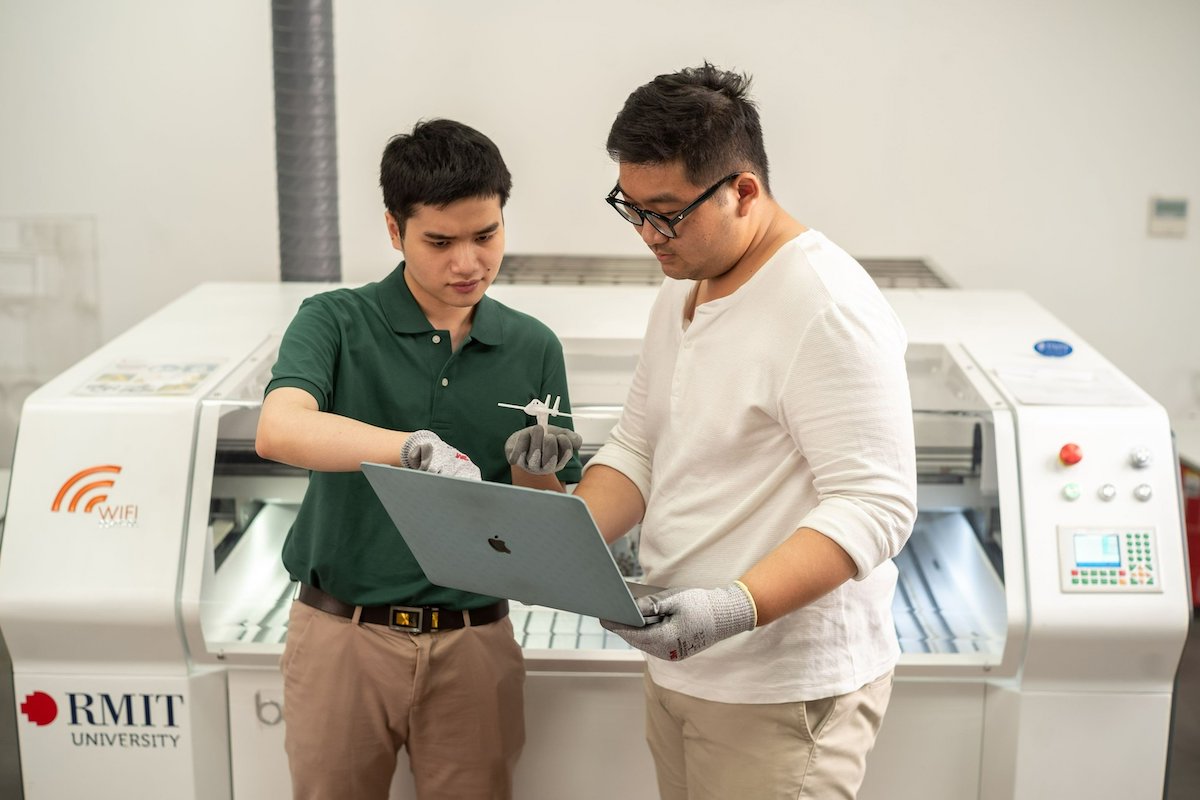


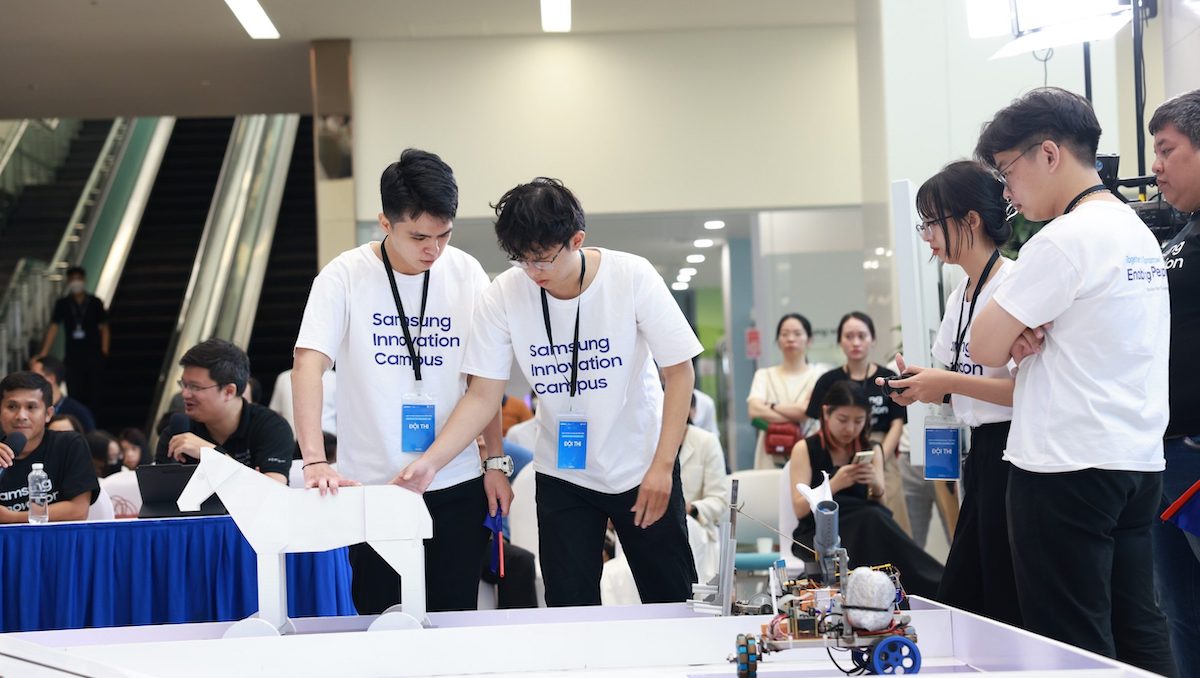

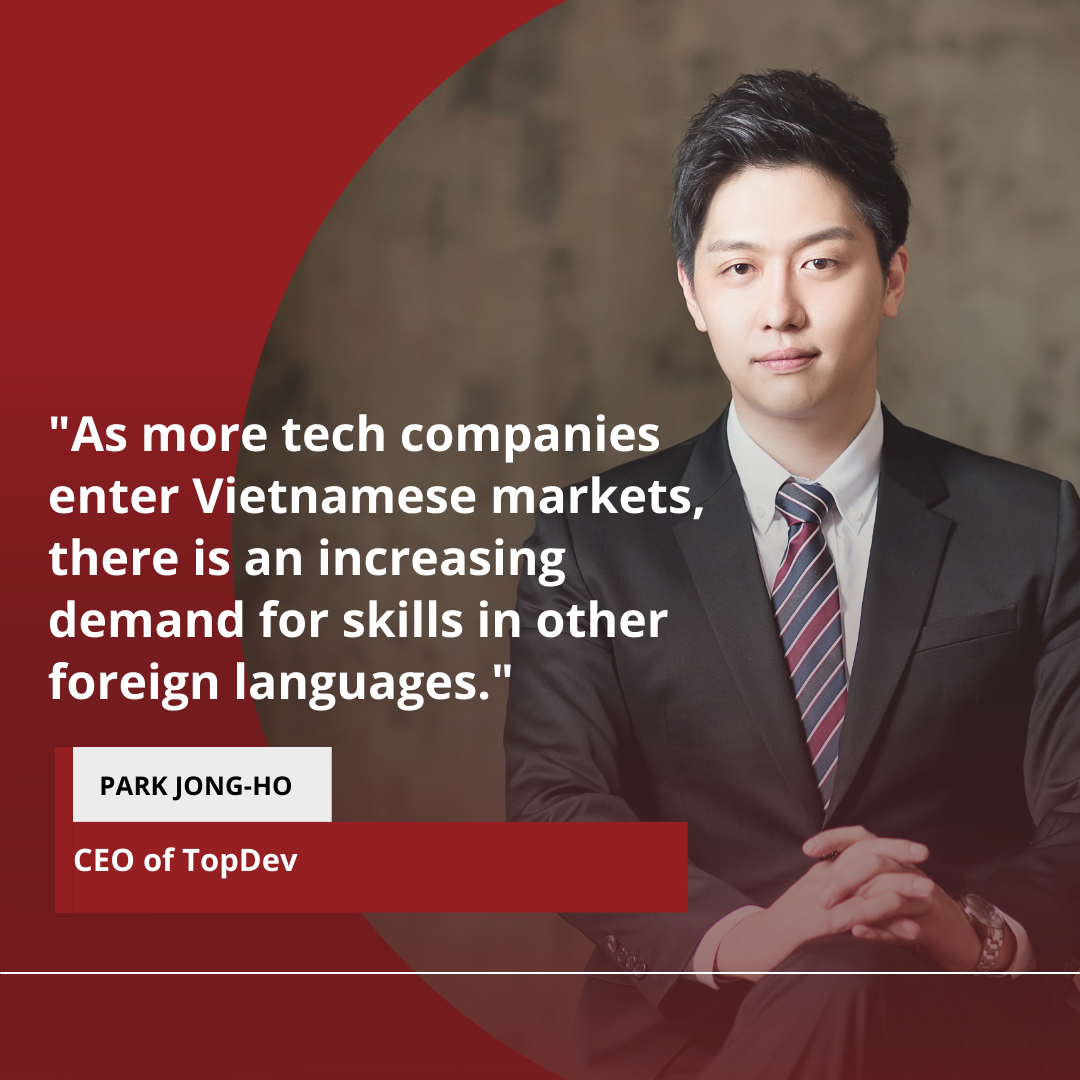
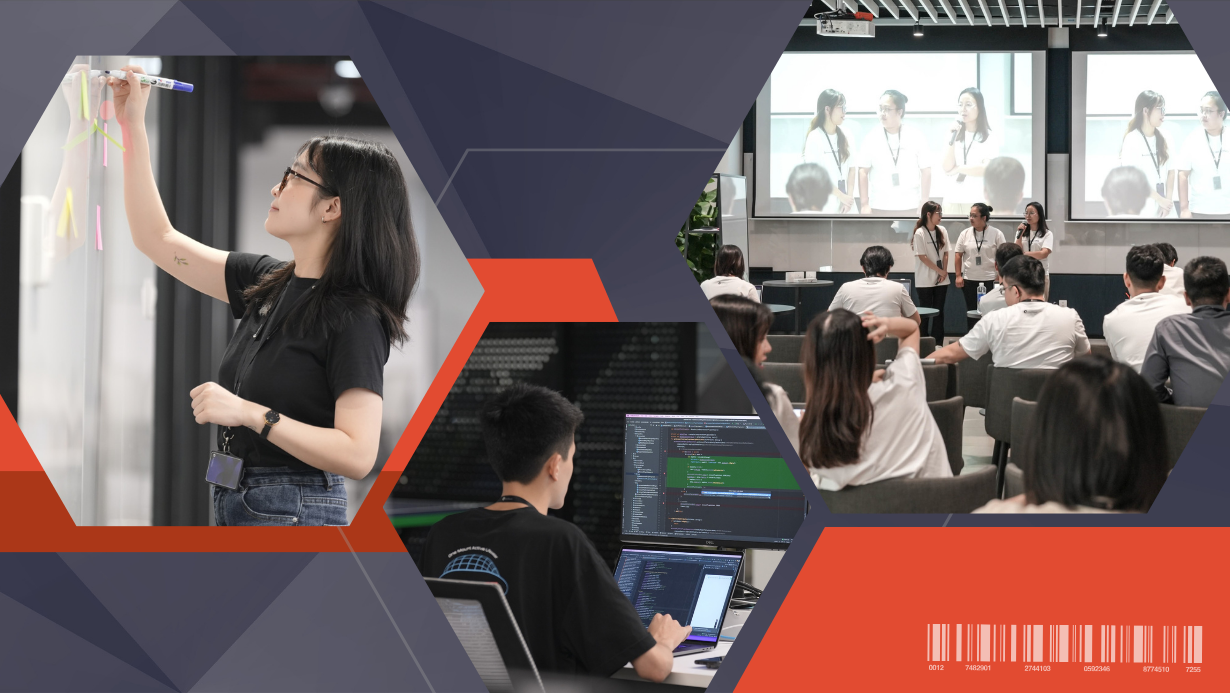
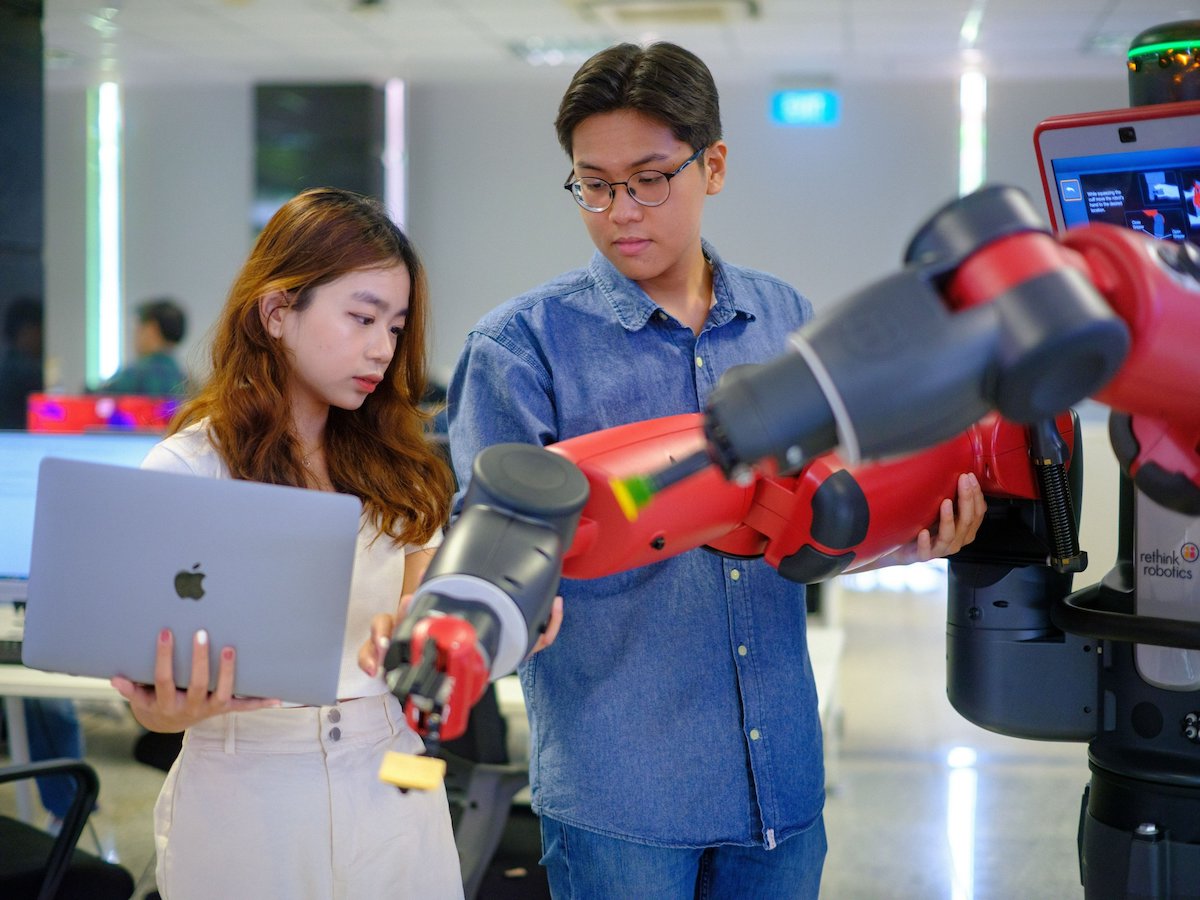
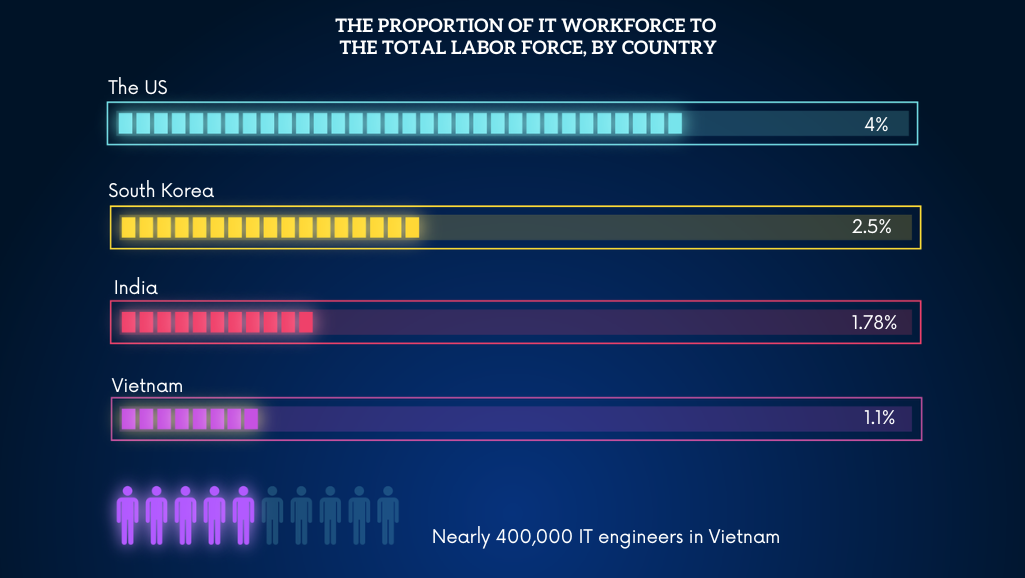

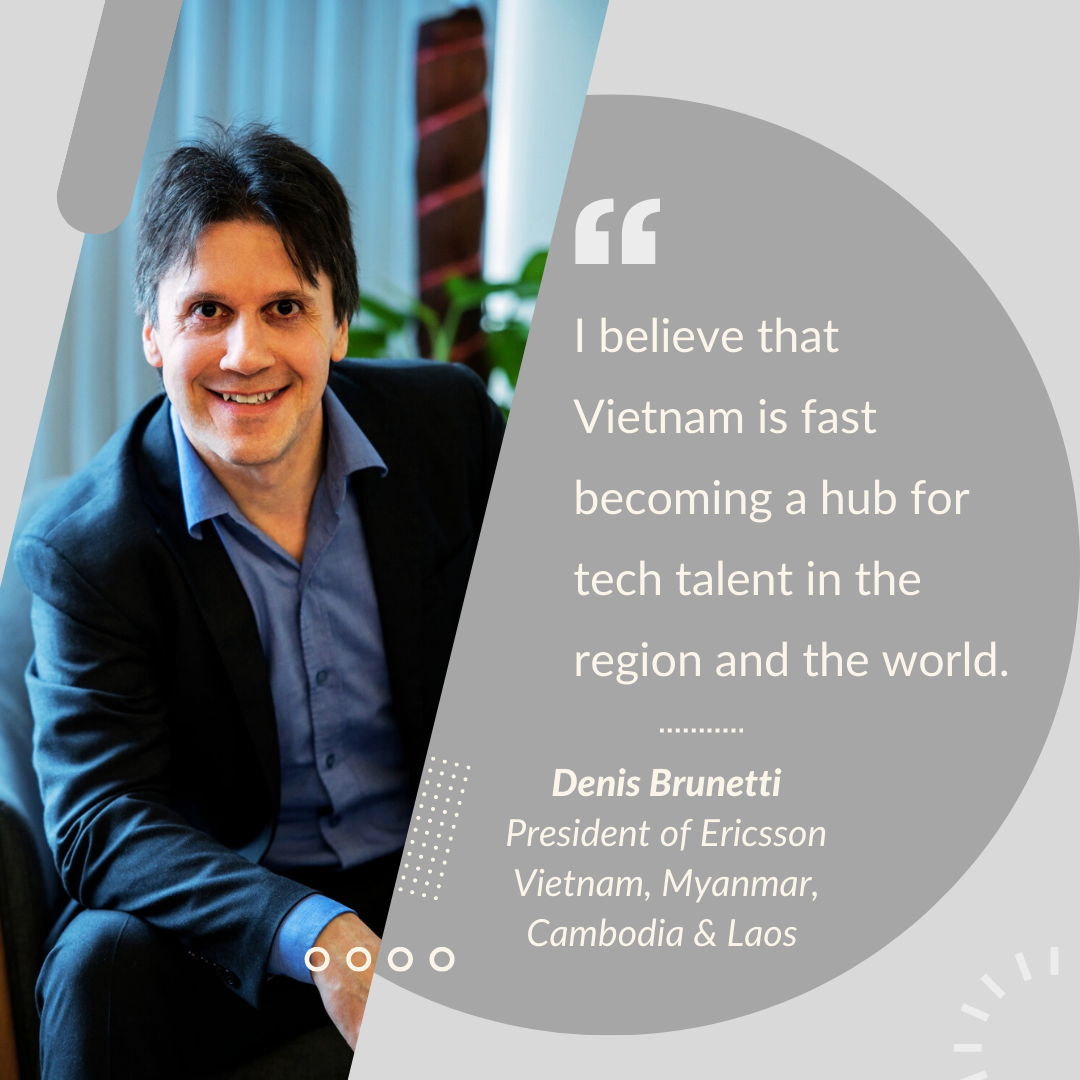
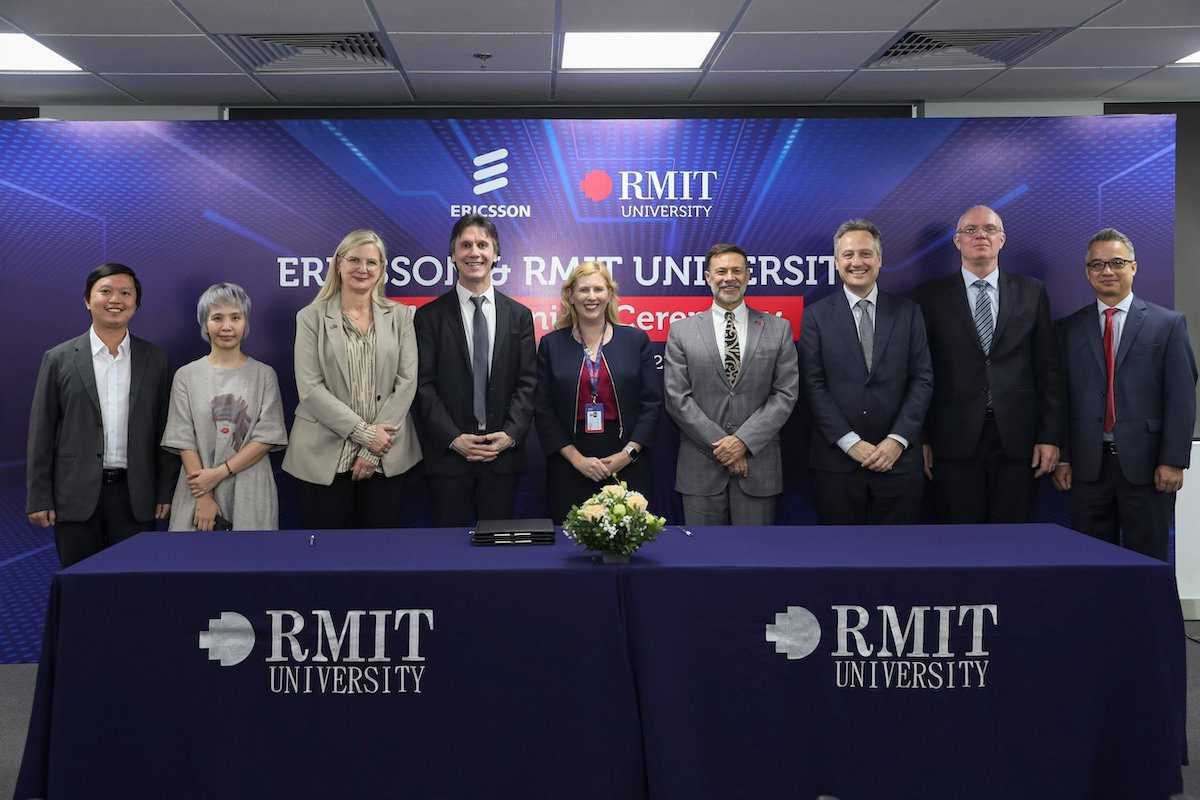
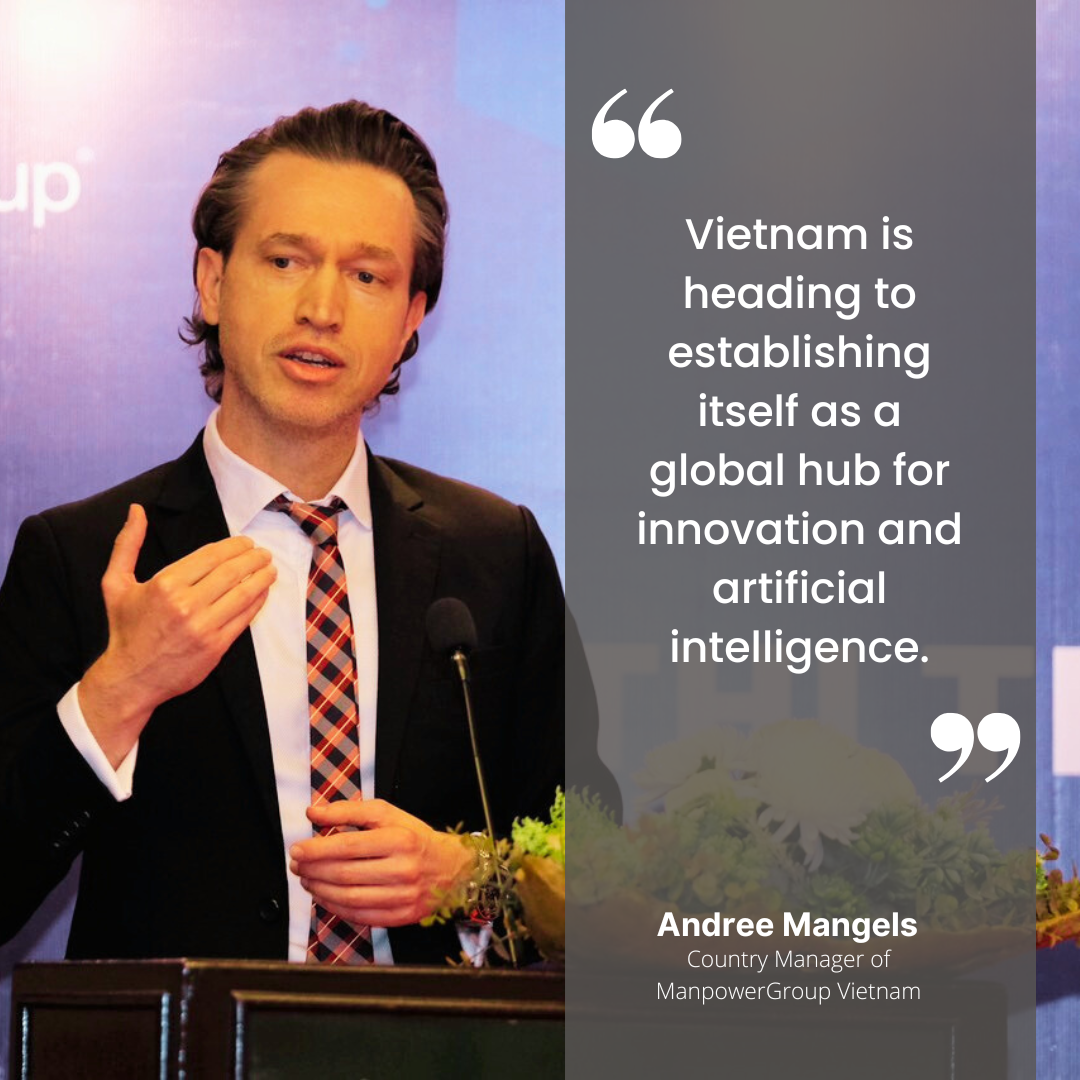


![[Vietnam – a hub of nurturing tech talent] Strong supporter of Vietnam's tech talent development](https://cdn-media.hanoitimes.vn/2023/08/23/Cover_P5_Tech_talent_HNT.png?w=480&h=320&q=100)








